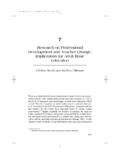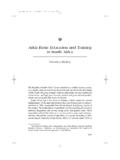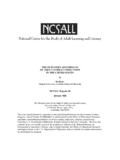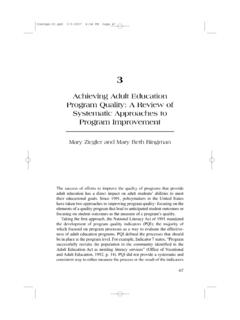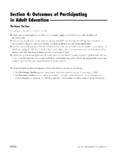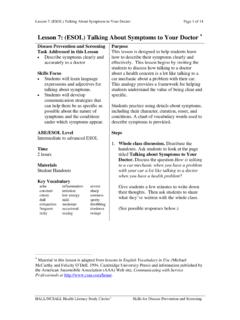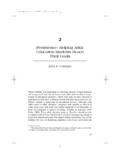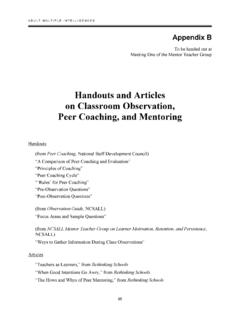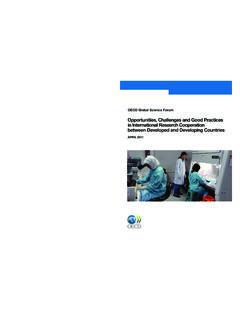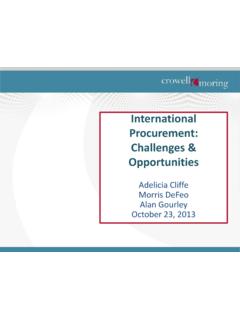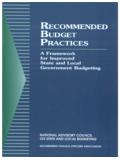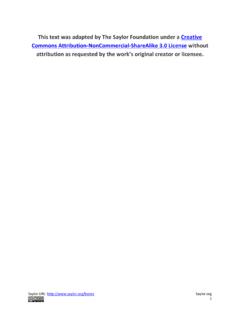Transcription of Adult Literacy Research: Opportunities and …
1 Adult Literacy research : Opportunities and challenges John Comings, Director Lisa Soricone, research Associate National Center for the Study of Adult Learning and Literacy Harvard Graduate School of Education NCSALL Occasional Paper January 2007 Harvard Graduate School of Education 101 Nichols House, Appian Way Cambridge, MA 02138 National Institute for Literacy 1775 I Street NW, Suite 730 Washington, DC 20006 NCSALL Occasional Papers are funded by the Educational research and Development Centers program, Award Number R309B960002, as administered by the Institute of Education Sciences (formerly Office of Educational research and Improvement), Department of Education.
2 The contents of this paper were developed using funds transferred from the National Institute for Literacy to the Institute of Education Sciences. The views expressed herein do not necessarily represent the positions or policies of the National Institute for Literacy , the Institute of Education Sciences, or the Department of Education. No official endorsement by the National Institute for Literacy , the Institute of Education Sciences, or the Department of Education of any product, commodity, service or enterprise mentioned in this publication is intended or should be inferred. iii CONTENTS Introduction.
3 1 Structure of this Monograph .. 3 Opportunities Provided by research in the Adult Literacy 5 Small Number of 5 Measuring Outcomes and Impact .. 8 Ease of Access ..11 challenges to Scientific research in Adult Lack of Theory-based Models for Instruction and Services ..13 Informed Consent ..15 Incomplete and Inconsistent Inaccurate Data ..22 Lack of Valid and Reliable Multiple Lack of Program Resources ..28 Shortcomings of Existing Data Lack of research Options for Supporting Rigorous research ..35 A More Ambitious Effort ..35 Larger Studies ..35 Programs as Allies in Next Steps.
4 37 Peer Reviewers ..47 Government Officials ..47 1 INTRODUCTION Cognitive skills and educational credentials are strong predictors of success in the labor market (Kerckhoff, Raudenbush, & Glennie, 2001). Unfortunately, a large proportion of the U. S. workforce does not have the skills and credentials required to secure and hold jobs that pay good wages and provide benefits (Comings, Reder, & Sum, 2001). Since most workers are outside the K 12 system, investments in improving primary and secondary schools have little immediate impact on the skills and credentials of the workforce.
5 An investment in K 12 education only leads to employment outcomes after 10 to 12 years, or even longer, while the impact for Adult education could be immediate. To address this need, the Workforce Investment Act s (WIA) Title II1 supports educational services for adults ; these services include Adult Literacy , Adult basic education (ABE), family Literacy , workplace Literacy , Adult English for speakers of other languages (ESOL), Adult secondary education (ASE), and General Education Development (GED) programs. The benefits of successful participation in these programs accrue not only to our economy but to other aspects of our national life as well.
6 The skills needed to succeed in the workforce are the same skills needed to succeed as parents and citizens. In addition, workers, parents and citizens must now continue learning throughout their lives. A strong foundation of basic skills and knowledge supports lifelong learning. Adult Literacy practitioners must make many decisions about how to design their programs to serve the goals of WIA. Practitioners usually base decisions about the design of program services on theories and approaches learned in training, the opinions of experienced practitioners, and personal experience gained through trial and error (Beder & Medina, 2001; Smith, Hofer, Gillespie, Solomon, & Rowe, 2003).
7 Though these decisions often lead to programs that meet the accountability requirements of WIA, the practices employed by programs usually have not been rigorously evaluated. WIA requires programs to base decisions about the design of programs on evidence from scientific research . The Department of Education defines scientific research as studies that are rigorous, systematic, objective, empirical, and peer reviewed and that rely on multiple measurements and observations, preferably through experimental or quasi-experimental This evidence-based approach to making decisions is meant to insure that participants in Adult Literacy programs receive services that provide them with the best possible opportunity to gain the skills and credentials workers need to be successful in the labor market and in their roles as parents and citizens.
8 1 2 NCSALL Occasional Paper January 2007 2 Unfortunately, the field of Adult Literacy only has a small foundation of scientific research . Beder (1999) reviewed 115 studies of program outcomes and impact in the field and found that only 23 met minimum standards for analysis. Once his review was complete, he concluded that even these 23 studies had flaws that significantly compromised the validity and usefulness of the findings. Kruidenier (2002) identified only 70 Adult reading research studies that met the standards of scientific research .
9 Comings, Soricone, and Santos (2006) reviewed the literature on advice for the design of services (including such factors as management, intake, orientation, support services, learning resources, and reengagement of dropouts, but excluding instruction of specific content such as reading, writing, or math) and found that little scientific research conducted in Adult Literacy programs supported the advice. All three reviews acknowledge that the weakness of the research base is due, in part, to challenges to obtaining meaningful results from scientific research that plague studies in the Adult Literacy field.
10 This paper has two goals that support the building of a stronger research base for the Adult Literacy field. The first goal is to interest researchers in pursuing rigorous scientific research in this field. Despite the many challenges to research , this field offers researchers some Opportunities to have a positive impact on education, increase the research base, and advance their careers. The second goal is to identify these challenges and approaches to overcoming them so that future research could design more successful studies. Addressing these challenges to research is a critical step toward building a larger and stronger foundation of evidence to support practitioner decisions.
